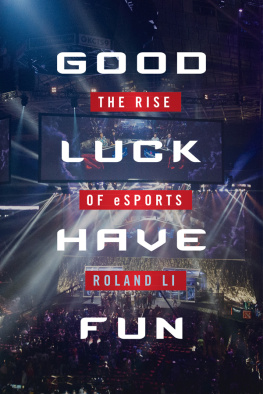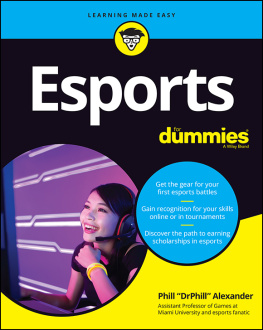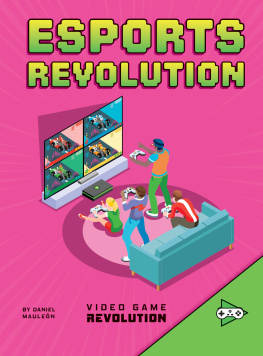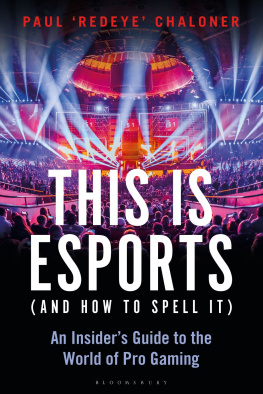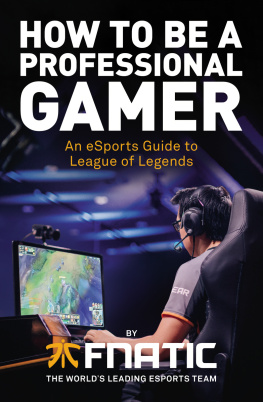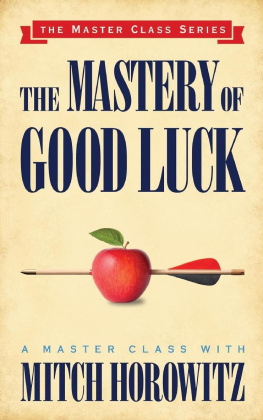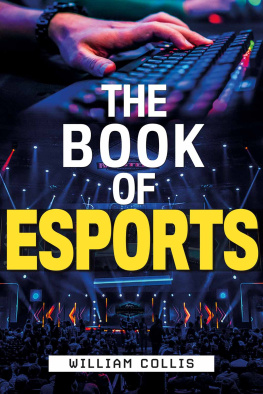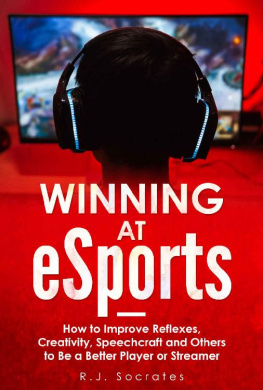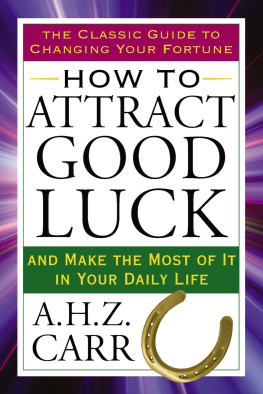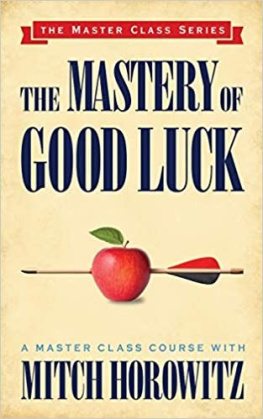Roland Li - Good luck have fun: the rise of eSports
Here you can read online Roland Li - Good luck have fun: the rise of eSports full text of the book (entire story) in english for free. Download pdf and epub, get meaning, cover and reviews about this ebook. year: 2016, publisher: Skyhorse Publishing, genre: Politics. Description of the work, (preface) as well as reviews are available. Best literature library LitArk.com created for fans of good reading and offers a wide selection of genres:
Romance novel
Science fiction
Adventure
Detective
Science
History
Home and family
Prose
Art
Politics
Computer
Non-fiction
Religion
Business
Children
Humor
Choose a favorite category and find really read worthwhile books. Enjoy immersion in the world of imagination, feel the emotions of the characters or learn something new for yourself, make an fascinating discovery.
Good luck have fun: the rise of eSports: summary, description and annotation
We offer to read an annotation, description, summary or preface (depends on what the author of the book "Good luck have fun: the rise of eSports" wrote himself). If you haven't found the necessary information about the book — write in the comments, we will try to find it.
Good luck have fun: the rise of eSports — read online for free the complete book (whole text) full work
Below is the text of the book, divided by pages. System saving the place of the last page read, allows you to conveniently read the book "Good luck have fun: the rise of eSports" online for free, without having to search again every time where you left off. Put a bookmark, and you can go to the page where you finished reading at any time.
Font size:
Interval:
Bookmark:


Copyright 2016 by Roland Li
F IRST E DITION
All rights reserved. No part of this book may be reproduced in any manner without the express written consent of the publisher, except in the case of brief excerpts in critical reviews or articles. All inquiries should be addressed to Skyhorse Publishing, 307 West 36th Street, 11th Floor, New York, NY 10018.
Skyhorse Publishing books may be purchased in bulk at special discounts for sales promotion, corporate gifts, fund-raising, or educational purposes. Special editions can also be created to specifications. For details, contact the Special Sales Department, Skyhorse Publishing, 307 West 36th Street, 11th Floor, New York, NY 10018 or .
Skyhorse and Skyhorse Publishing are registered trademarks of Skyhorse Publishing, Inc., a Delaware corporation.
Visit our website at www.skyhorsepublishing.com.
10 9 8 7 6 5 4 3 2 1
Library of Congress Cataloging-in-Publication Data
Names: Li, Roland.
Title: Good luck have fun : the rise of eSports / by Roland Li.
Description: First Edition. | New York : Skyhorse Publishing, [2016]
Identifiers: LCCN 2016004243 (print) | LCCN 2016005862 (ebook) | ISBN 9781634506571 (hardcover : alk. paper) | ISBN 9781634506588 (ebook) | Subjects: LCSH: Video gamesCompetitions.
Classification: LCC GV1469.3 .L54 2016 (print) | LCC GV1469.3 (ebook) | DDC 794.8dc23
LC record available at http://lccn.loc.gov/2016004243
Cover design by Rain Saukas
Jacket photo by Jakob Wells is licensed under CC BY 2.0. View license at creativecommons.org/licenses/by/2.0
Printed in the United States of America
This book is dedicated to the eSports community. You make this possible.
CONTENTS
Pre-Game
WHY VIDEO GAMES MATTER
On October 19, 1972, two dozen students gathered at Stanford Universitys Artificial Intelligence Laboratory to do battle among the stars. They piloted ships through a speck-filled void, shooting missiles and dancing against gravity in one of the worlds first video games, Spacewar. First prize was a years subscription to Rolling Stone magazine.
Spacewar was played on the Programmed Data Processor-1, an early computer that weighed 1,200 pounds and was limited mostly to academic centers. A group of students at the Massachusetts Institute of Technology created the game, which was primitive but joyful, sucking players in and creating a community.
Reliably, at any nighttime moment (i.e., nonbusiness hours) in North America, hundreds of computer technicians are effectively out of their bodies, locked in life-or-death space combat computer-projected onto cathode ray tube display screens, for hours at a time, ruining their eyes, numbing their fingers in frenzied mashing of control buttons, joyously slaying their friends and wasting their employers valuable computer time. Something basic is going on, Stewart Brand wrote in Rolling Stone .
Competition has always been a central part of video games. The first arcades measured skill with high scores. Top players could etch their names in three-letter combinations, showing off to subsequent players until they were knocked down. Spacewars source code was released for free, but as video games became a commercial enterprise, developers saw the potential of formal competition as a way of attracting more customers.
In 1980, Atari created the Space Invaders Championship, where thousands of players competed. The competitive show Starcade was broadcast on television the next year. In the 1990s, the Nintendo World Championships were held, where kids showed off their Super Mario skills.
Games became more complex, supporting more players and richer graphics and systems. The Internet heightened competition, spawning communities that formulated and dissected strategies across the globe.
Four decades later, competitive video gaming, also known as electronic sports or eSports, has become a global phenomenon. Millions of viewers watch competitions every month, and players train full time to compete for cash prizes that reach seven figures.
The professional gamers clicking furiously and staring intently at screens would be familiar sights to those students at Stanford four decades ago, even if their branded headphones and colorful team jerseys might seem strange.
Technologys penetration into virtually every aspect of our lives has made gaming ubiquitous. Video games are played around the world, from Stockholm to Seoul to San Francisco, between players connected almost instantly by the Internet. Streaming video competitions are a click away on a computer, tablet, or phone. Broadcast costs have plummeted thanks to investments and the tenacity of some key entrepreneurs. But the most critical factor in the success of eSports is the passion, if not outright obsession, of the players, tournament organizers, investors, game developers, and, above all, the fans. They made it possible, and their flaws and struggles have made eSports an imperfect phenomenon. No one got into eSports originally to get rich, but now they can.
Passion isnt always enough. The industry is littered with the digital fragments of teams, players, and organizations that no longer exist, with a legacy of unpaid salaries and defunct websites. Companies can live and die in days, teams shuffle rosters constantly, and players quit after poor results or when real life intrudes. Scandals like match fixing, unpaid prize money, and fraud abound. For all its growth, regulation is almost nonexistent. If the NBA and NFL are entering a fat and lucrative middle age, eSports is still the twenty-five-year-old who got a killer job but hasnt figured his life out yet.
The adversarial and interactive nature of video games makes them different than most other art forms, like film, television, music, and theater. The struggle against a computer or human opponent means that playing can become a craft. Many of the best games allow players to clearly differentiate themselves through skill, falling somewhere between the curated, individualized experience of traditional art and the competitive nature of sports. Games transport the player into an entirely new virtual place through sights and sounds. Its a new medium, and for some, a frightening glimpse at a future detached from reality: a waste of time.
Do video games matter? The question can be expanded. What value do athletes or actors or artists bring? Their contributions to society through competitions, movies, and artwork arent entirely tangible, yet many are beloved more than those who provide the food, shelter, and jobs that directly sustain people.
By evoking strong emotions, professional gamers and the games they play become worthy of attention. Fans vote with their money, but also their time.
Games have grown to be a cultural force and an economic powerhouse. The research firm Newzoo projects that global video game industry revenue will exceed $100 billion by 2017. And eSports is gaining a larger chunk of that investment every day, with Deloitte projecting eSports revenue of $500 million in 2016.
The late film critic Robert Ebert claimed that video games could never be art. But there is a beauty and aesthetic to a pro gamers movements, his or her reflexes, the coordination and sequencing of a team in harmony. Skill clearly differentiates good players from bad.
What makes a good player? First is mastery of mechanics, the physical control of play through mouse clicks and keyboard taps. In a shooting game, gun accuracy and player positioning are essential.
Font size:
Interval:
Bookmark:
Similar books «Good luck have fun: the rise of eSports»
Look at similar books to Good luck have fun: the rise of eSports. We have selected literature similar in name and meaning in the hope of providing readers with more options to find new, interesting, not yet read works.
Discussion, reviews of the book Good luck have fun: the rise of eSports and just readers' own opinions. Leave your comments, write what you think about the work, its meaning or the main characters. Specify what exactly you liked and what you didn't like, and why you think so.

